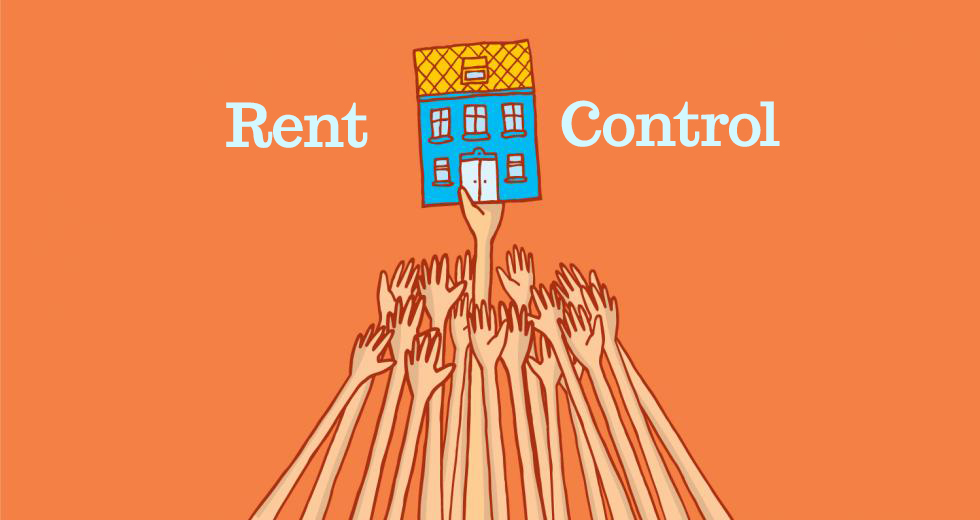For example, if you are renting in Studio City, and you pay 2,000$ a month for rent, and Los Angeles County has an annual inflation rate of 3.3%, then your landlord can increase your rent to 2166$. If a rental is less than 15 years old the building is exempt on a rolling basis. This means that a building built in 2006 is not eligible for assembly bill 1482 in 2020 but in 2021 it will apply. The law applies to nearly all multi-family buildings except single-family homes and condos unless they are owned by a corporation or REIT. Furthermore, if you lived in a building already covered by local rent control laws (Santa Monica, West Hollywood, Beverly Hills, Culver City, Inglewood, etc.) you will not be affected.
While this law helps with California’s housing crisis by preserving affordable housings it may have perverse effects in the long run. If the landlord’s profits diminish so does the demand to operate and grow a rental business. Given Governor Newsom’s goal of creating 3.5 million housing units to address the shortage, assembly bill 1482 could slow-down that objective. The California Rental Housing Association in particular is very critical of the bill given California’s growing population, and the second-highest poverty rates in the nation. The Association is pushing for greater focus on building houses and rezoning to bring the costs down for renters.
There are currently several pieces of legislation in the state pipeline that if passed would greatly shift the rental landscape.
Proposition 21 is the icing on the AB 1482 cake with further rent restrictions across more property classes. The right to increase rent to market upon a tenant’s vacancy will be limited and vacancy de-control will no longer exist. There will be a statewide registry and bureaucracy to monitor rents statewide with a rolling 15-year exemption. This is effectively giving cities and counties more power to expand rent control to more buildings while exempting newly constructed buildings.
- Amends state law to allow local governments to establish rent control on residential properties over 15 years old. Allows local limits on annual rent increases to differ from current statewide limit.
- Allows rent increases in rent-controlled properties of up to 15 percent over three years at start of new tenancy (above any increase allowed by local ordinance).
- Exempts individuals who own no more than two homes from new rent-control policies.
- In accordance with California law, prohibits rent control from violating landlords’ right to fair financial return
Then there is Proposition 15 designed to create a split roll property tax system between commercial and residential properties based on an annual assessment of the properties market value. This proposition is likely the first steppingstone in a bigger picture goal to split the tax roll between single-family owner-occupied properties and any other properties held for investment purposes.
- Increases funding for K-12 public schools, community colleges, and local governments by requiring that commercial and industrial real property be taxed based on current market value, instead of purchase price.
- Exempts from taxation changes: residential properties; agricultural land; and owners of commercial and industrial properties with combined value of $3 million or less.
- Any additional educational funding will supplement existing school funding guarantees.
- Exempts small businesses from personal property tax; for other businesses, provides $500,000 exemption
Lastly, AB 828 that allows any tent from March 4th, 2020 through 90-days following the end of the local declaration of emergency to not pay rent if they have, in any way, been impacted by the circumstances surrounding Covid-19.
https://leginfo.legislature.ca.gov/faces/billTextClient.xhtml?bill_id=201920200AB828
In the long-term, these laws will greatly impact landlords whose yearly cash flows and long-term growth for rental properties will diminish. For landlords to adjust to diminishing returns there is likely going to be efforts to lower operational costs and an increase in deferred maintenance. This could result in lower quality options for tenants. For buyers, the inability to increase rents will lower the property value which will reduce the appeal of investment properties. This is especially true for newer luxury properties since their long-term cash flows are limited once they reach the 15-year mark. The question at hand, is lightening the load for tenants by putting greater burden on the landlords going to weaken investment in the industry.
